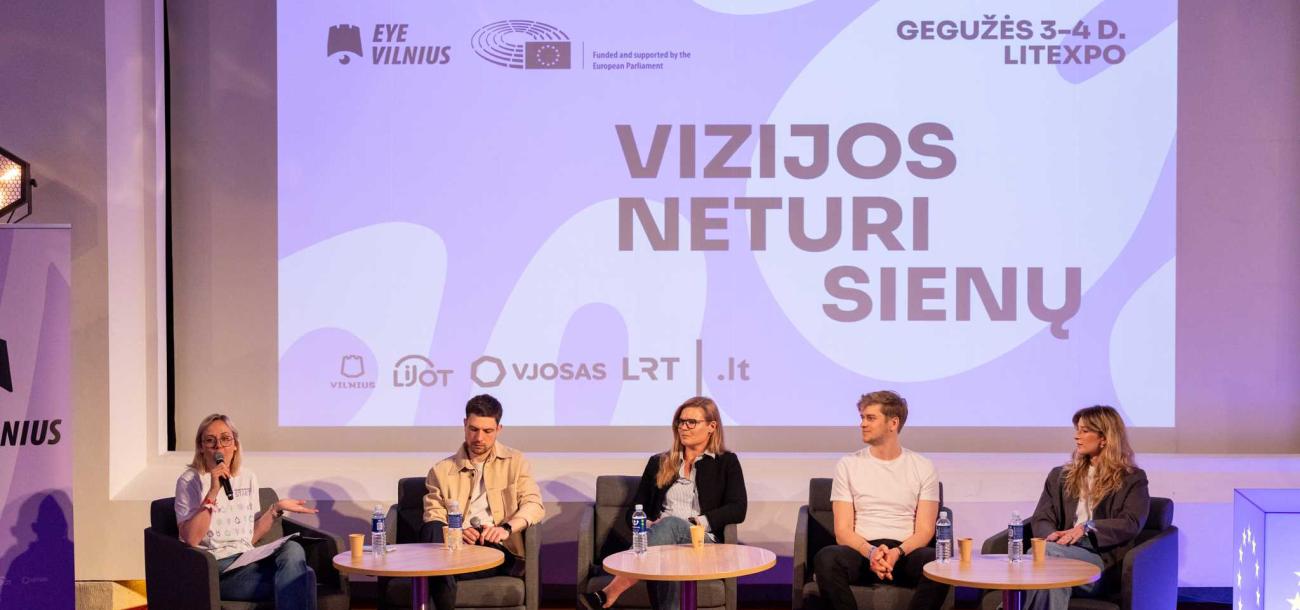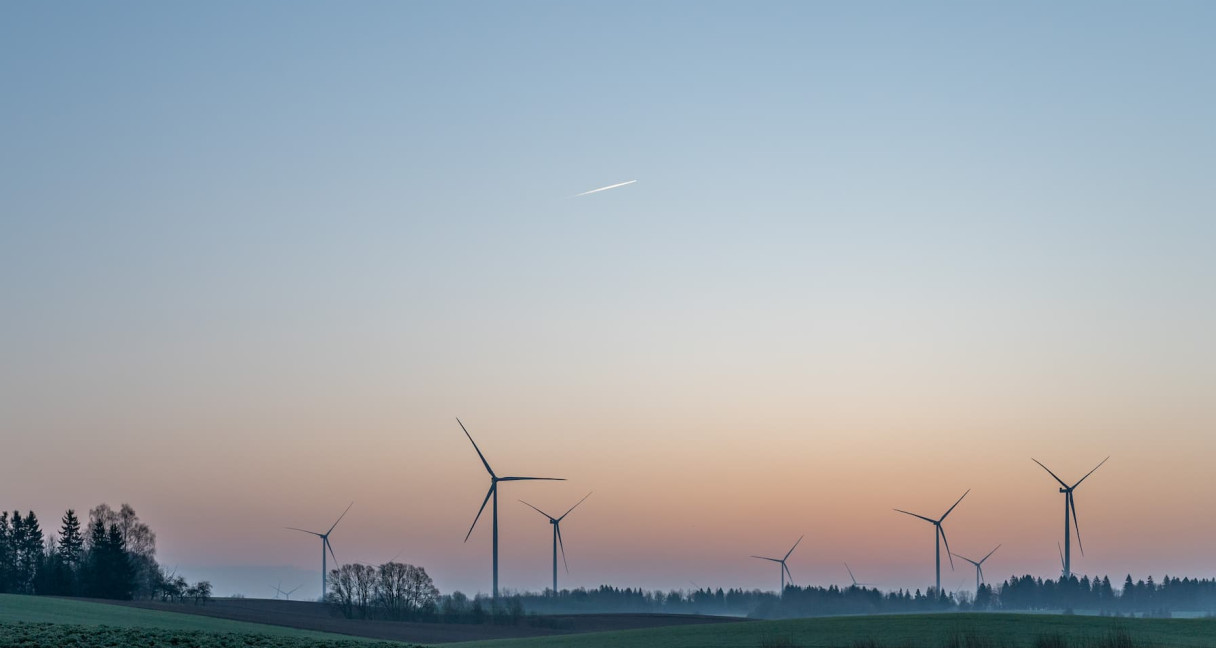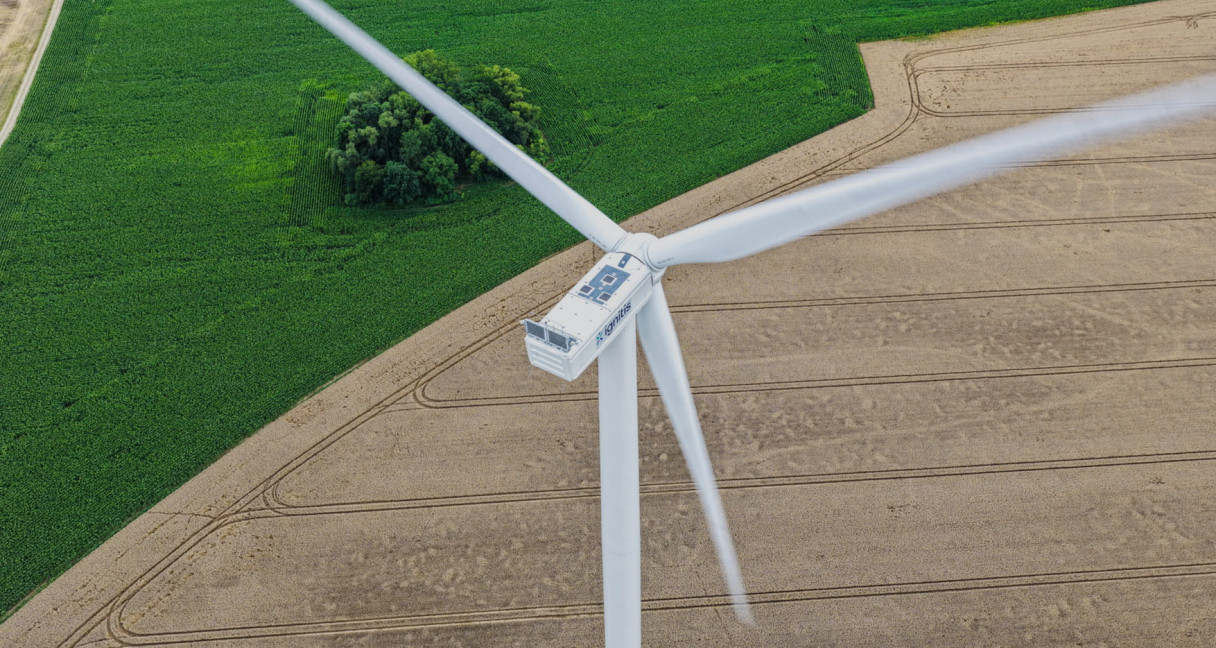Discover the energy sector and yourself in it
The energy sector employs around a hundred different professions. After they complete their studies, people can work here as energy engineers, offshore wind designers, sustainability engineers, innovators, hydrogen experts, energy data analysts, and electricity network designers. Today, careers in the energy sector are still in the making, and it is likely that by 2030 there will be some that we have not even thought of.
Specialists at Ignitis Group mutually agree that purpose is one of the most important things that capture them in the energy sector. Also, they can contribute to significant changes and create a 100% green and secure energy ecosystem for current and future generations.
Dominykas Stonkus, Head of Network Development Operations at ESO, says he discovered himself in the energy sector quite unexpectedly. He loved physics in school, so he chose electronic engineering studies at Vilnius TECH University.
“After I completed my studies and started looking for work, I found a job ad at ESO. I am now counting my sixth year working in the energy sector. The three main things that capture me is purpose, dynamic environment and colleagues. After working here, I understood that I am contributing to useful changes that are important to a very large amount of people. Work here is very dynamic, and my colleagues are experts in their fields. I am constantly learning from them,” says D. Stonkus.
Gretė Bagdonaitė, Innovation Expert at Ignitis Group, agrees with him. According to G. Bagdonaitė, the energy sector stands out for its determination and willingness to change and become more sustainable.
“It's truly a great feeling to be a part of this transition. Especially, in Lithuania, where you can see the energy transition happening every day. The commitment to change is not the only reason for this. The people working in the sector want it too. Working together with so many motivated colleagues make you see that will and determination can actually change our future. And this makes you motivated too,” says G. Bagdonaitė.
She works with customer products – creating new services or business opportunities. Making such solutions a reality is especially important to encourage customers to be as active in the energy sector as possible. Energy efficiency is a very important part of a sustainable energy sector.
In recent years the gap between the demand and supply of talent in STEM (science, technology, engineering, and mathematics) field has reached record highs. Companies are trying to create good conditions for young talented people to grow and learn together with the company. Jokūbas Čiurlionis, Head of Energy Storage Technologies, has taken an opportunity to have an internship at Ignitis Group.
“Even though my path to the energy sector was fairly direct, it was not entirely straight. The EV expansion that has been constantly gaining speed encouraged me to choose automotive engineering studies. Later I chose energy system master. When I was looking for internship opportunities, I noticed Ignitis Group’s invitation and had the opportunity to work at the Innovations team, where I learned about the Lithuanian energy system and explored the solar potential of the roofs of various buildings in Lithuania. After the studies, I continued to work as an engineering designer in another company that is developing solar power plants. However, when I had the opportunity to come back to Ignitis Group, I did not consider it for long and I found myself designing advanced storage technologies that are solving challenges created by smart energy solutions,” says J. Čiurlionis.
Gerda Krasauskė, Transmission Package Manager at Ignitis Renewables, shares that in people in her environment thought that working in the energy sector is mainly climbing utility poles to fix a broken wire. However, the energy sector is much wider – here you are meeting unique challenges and looking for and implementing solutions. G. Krasauskė studied civil engineering and, after graduating, started designing high-voltage transmission network supports. At that time, her interest in the energy sector grew enormously – her work had a clear sense of purpose, sustainability (unaffected by the economic crisis) and a wide range of creative and upskilling opportunities. After starting at the position of an engineer/designer, she grew to lead strategic projects. An engineering degree and work experience were very helpful in G. Krasauskė’s career.
“I believe that the most interesting historical period is the current one after electricity was discovered and the first electricity transmission networks were constructed. They were adapted for single-point generation sources with a predictable and controllable generation capacity. Then the main challenge was solving the issues related to the security of supply and reliability. Now, the issues related to network flexibility and balancing are emerging as we are seeing the changes in generation sources, their locations, and in the wake of generation instability due to natural reasons. With the closure of the nuclear power plant, we have gone from being a country that exports electricity to one that imports it. However, the offshore wind farm we are developing is estimated to cover up to a quarter of the current electricity demand in Lithuania. The importance of such projects is crystal clear,” says G. Krasauskė.
Lithuania may become a hub for the future energy professionals of the entire Baltic region. The demand for energy specialists is growing every year. It is estimated that just Lithuania alone will require at least 2,500 additional qualified specialists by 2030. 1,500 will be offshore specialists.
#EnergySmartSTART is an educational programme, initiated by Ignitis Group, dedicated to students and anyone who is thinking about a career in the energy sector or wants to know more about it. Find out more about working in the energy sector: www.energysmartstart.lt





